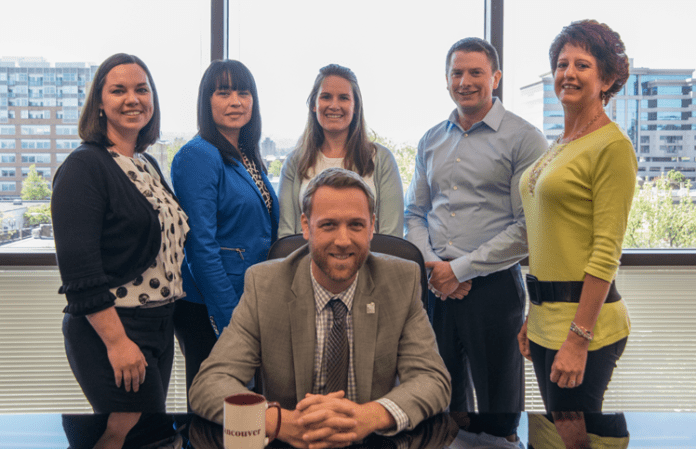Since forming in 1982, the Columbia River Economic Development Council (CREDC) has grown into a private-public partnership with more than 130 investors and partners working to advance Clark County’s business growth through relocation and supporting innovation.
“The wind has been at our backs,” said CREDC President Mike Bomar, speaking of the upswing in business growth and expansion in Clark County. Bomar led the organization to meet all of its target growth goals last year – and then some. However, it wasn’t always full-speed ahead. Like much of the local economy, just four years ago the CREDC was stalled with no business growth to claim in the region.
A steady incline of achievements
Although analysts are still “predicting a slope downward in 2020 or maybe 2030,” Bomar said forthcoming achievements at the CREDC remain on a steady incline. Some top businesses they recruited and won for Clark County in 2014 are Banfield Pet Hospital from Portland, Garage Games from Las Vegas and United Natural Foods from Tennessee.
These deals top a longer list of other possible recruitments that may fall into place as the summer progresses.
Max Ault, CREDC business development manager, is working on a list of 20 growing businesses who are considering relocation here. Ault has also been coordinating with start-ups in the high tech community to determine the strongest candidates to receive funding.
Regarding the organization’s support of potential high tech upstarts, Bomar said one local bio-tech company has succeeded with support from the council. He also soberly added, that from concept to initial runs of production, “success is largely a game of averages.”
With that assessment, Bomar added, “It’s okay to fail,” and noted that “the successful projects are done by those with a passion to succeed in a specific, detailed field of study.”
When it comes to bringing new businesses to the region, especially new businesses that have a strong online community and network, Bomar said the council never underestimates the power of good old fashioned word-of-mouth. For example, he said the tech gaming industry has shown an interest in settling in Vancouver. When one company talks up their relocation in Clark County, casual affirmation can bring similar businesses to the area.
Funding & focus
Since its founding, the CREDC has always bounced between private funding and public government funding, but it’s not so bouncy these days. Establishing a balance “is an interesting challenge” said Bomar, who has maintained it purposefully since accepting the position of president in October 2013.
With a background in developing and acquiring possible land and acreage for businesses, Bomar believes a permanent position focused entirely on “land for jobs” at the CEDC is a possibility, dependent upon funding from investors. For now, finding work space and suitable land available for existing local businesses that need space to grow remains one of the council’s fundamental objectives.
Regarding land for jobs, the CEDC also pushes for focused infrastructure development in Southwest Washington, the funding of which is decided by the state Legislature.
“Aside from the Columbia River Crossing dilemma, which is four years old, there is over a billion [dollars] needed for local structural problems,” noted Bomar.
The biggest stumbling block in the way of that development, said Bomar, is competition from other areas of the state.
“We and Olympia are sometimes working against each other in the problem of competing for opportunities, for expansion,” he said, adding that the special legislative session looks more promising than usual for pragmatic compromise and bringing policymakers together.
Changes in recruitment
The CREDC’s specific techniques for recruitment have changed in the past year. Denise McCarty, VP and director of recruitment and advancement, joined the organization two years ago. According to Bomar, McCarty’s exact research and skills in communicating with national site selectors has made a difference. Specifically, he said, she has been able to listen and discover what businesses really need from Clark County.
Bomar said that this investigative approach has proven more useful in recruitment than booster-style “rah-rah” efforts.
As a sturdy vehicle for communication and researched information since 1986, the CREDC is on track for a strong 2015. The organization will seek a new contract with the Washington Department of Commerce this summer, when their biennial contract expires. Their investors, both public and private, are in total support of the continuation of that contract, Bomar said.
Editor’s note: The Columbia River Economic Development Council is a member of the Vancouver Business Journal’s Strategic Partners Program. To learn more about the program, contact Irene Pettengill at 360.448.6013.





